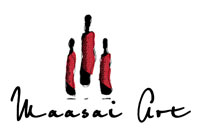Donations
With your financial support you will enable implementation of our projects. Learn more about how it works. Thank you very much!Newsletter
Our newsletter keeps you informed about our projects. You can sign up here.Search
Media library
In our media centre you can find a collection of news, photographs, video clips, radio reports and documents that follow our work. Unless otherwise stated, VSF has the copyright to all downloadable multimedia files. The publication (print, web etc.) is free of charge only in connection with an article about VSF.
Indigenous people comprise less than five per cent of the world population. Often these people live a life on the margins of society, because their traditional ways of life are considered outdated. Yet, indigenous peoples play a significant role in preserving world’s biodiversity in the ecosystems in which they have lived for centuries. In addition, each of these peoples contribute...
So leisten Hirten weltweit einen wesentlichen Beitrag zur Ernährungssicherheit selbst in den kargsten Gebieten der Erde. Mithilfe ihrer Tiere wandeln Pastoralisten auch die trockensten Pflanzenfasern in Fleisch und Milch um und ernähren damit Millionen von Menschen. Eines aber ist allen Hirten dieser Erde gemeinsam: ihre innige Verbundenheit mit Ihren Tieren.
NICHT VERPASSEN!
Folge...
Nein? Das wäre jedoch durchaus naheliegend. Denn Hirtenvölker pflegen eine Lebensweise, die zeitgemäßer ist denn je. Der beliebte Slogan „Zurück zur Natur“ appelliert direkt an unsere Sehnsucht nach mehr Nachhaltigkeit und nach einer Welt, die auch in Zukunft lebenswert für uns ist. Pastoralisten leben diese Nachhaltigkeit seit Tausenden von Jahren. Ihre Lebensform ist eine der ältesten überhaupt...
Pastoralisten pflegen einen nachhaltigen und umweltschonenden Lebensstil. Sie passen etwa die Dauer, die sie ihre Tiere an einer bestimmten Stelle grasen lassen, dem Zustand der Weide an. So wird das Ökosystem geschont und zugleich das Pflanzenwachstum angeregt. In Europa ist die Biodiversität überall dort am größten, wo Hirten mit ihren Tieren entlangziehen. Umgekehrt laugt die industrielle...
Nicht verpassen! Diese Woche strahlt der Fernsehsender ARTE eine Serie über Pastoralisten auf der ganzen Welt aus. Regisseur Mark Michel begleitete dafür Hirten auf der ganzen Welt bei ihrer täglichen Arbeit. Ein Interview mit ihm über die Einblicke, die er dabei gewonnen hat, finden Sie hier.
NICHT VERPASSEN!
Folge...
Ihnen allen gilt unser ganz besonderer Dank! Durch Ihre tatkräftige, oft bereits langjährige, Unterstützung von IMPFEN FÜR AFRIKA ermöglichen Sie es uns, schnell und unbürokratisch jenen Menschen in Ostafrika zu helfen, für die eine tierärztliche Versorgung keine Selbstverständlichkeit ist. Das gilt gleichermaßen für pastorale Gesellschaften und ihre Viehherden, als auch für die...
The work of veterinarians is associated with great responsibility for animals and humans. Not only are they experts on animal health. For many pet owners, the vet is also a savior in need, they encourage or give comfort.
In developing countries, veterinary work focuses on livestock farming. Sudan, Ethiopia and Tanzania are those African countries with the largest numbers of...
The world population is growing. To feed the world and do it sustainably, an urgent and radical shift in our food systems is inevitable. The United Nations have proclaimed the Decade of Family Farming in order to give this paradigm shift the necessary scope. To foster biological diversity and sustainable food production instead of intensive farming...
For the inhabitants of the East African steppe, pastoralism has always been the main source of income. However, non-traditional pastoral activities are increasingly contributing to the pastoral livelihoods, namely honey, tourism and fishing. The scientists D. M. Nyariki and D. A. Amwata have integrated all these aspects in their current study and investigated the value of pastoralism for Kenya's...
Milk is susceptible to various kinds of germs, which can be transferred to humans through food and cause infectious diseases. In Austria, strict hygiene measures are taken in each production step, so that dangerous germs do not get into food. Before milking, the udder of the animals is cleaned carefully. Necessary drinking water is available in sufficient quantities. Farmers, dairies and...
NACHRICHTEN
VSF International is looking for a Communication Officer
Our parent organization Vétérinaires sans Frontières International (VSF-Int) is looking for a...
VSF International is looking for a One Health Expert and an Advocacy Officer One Health
Our parent organization Vétérinaires sans Frontières International (VSF-Int) is looking for new...
Picture auction to benefit VSF
As part of the opening of the vernissage of the visual artist Guido Rupp, alias "GuRu", paintings...
VIDEOCLIPS
John Laffa sends Christmas greetings from Tanzania
Our Tanzanian employee John Laffa wishes all supporters and friends of Veterinarians without...
Steam cooking in the traditional way
Sweet potatoes are very popular in Africa. In Tanzania, many small traders sell steamed sweet...
Maasai student Lucas Moreto successfully finishes diploma course!
We congratulate our Maasai student Lucas Moreto! As reported, Lucas is studying law at the TUDARCO...


















